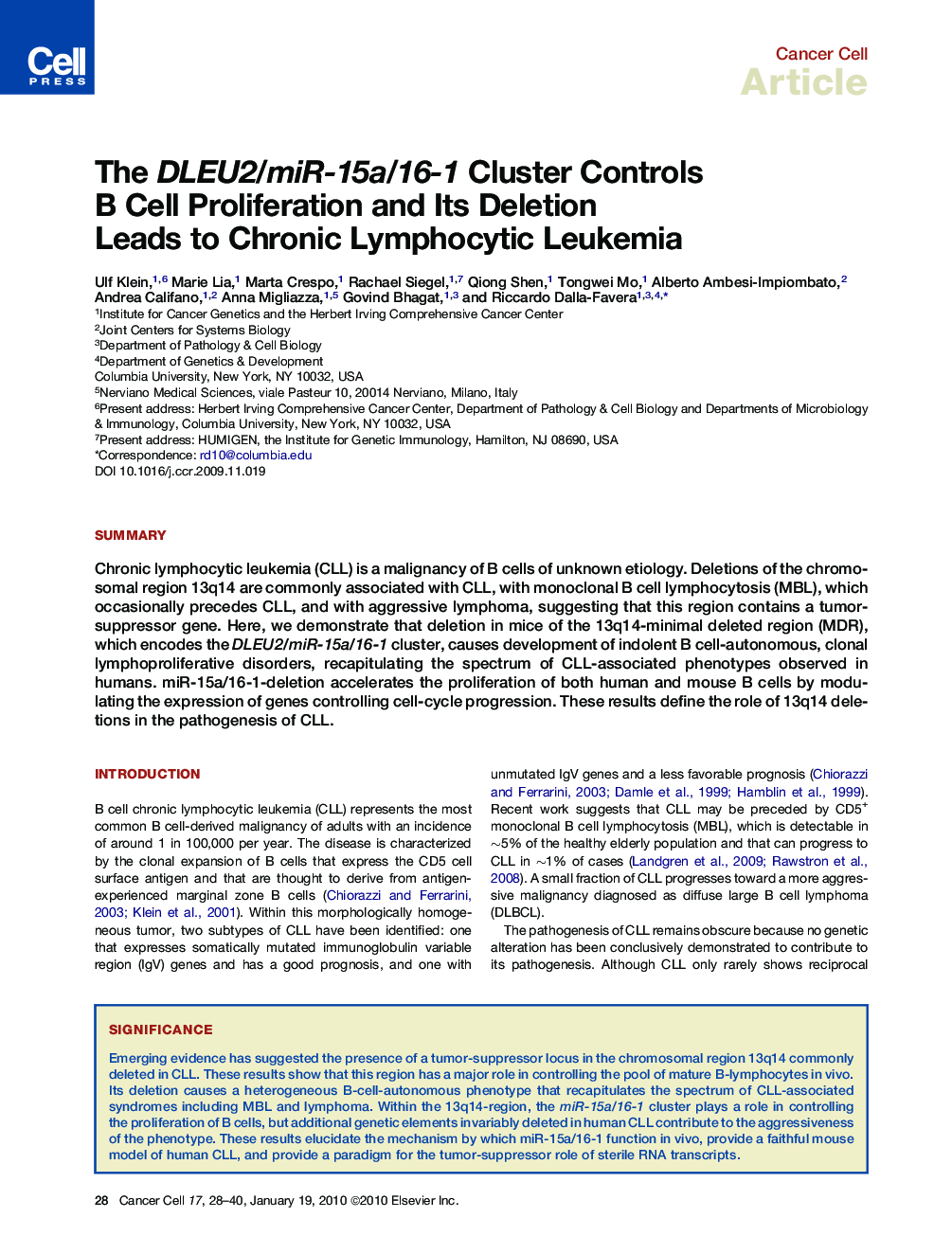| Article ID | Journal | Published Year | Pages | File Type |
|---|---|---|---|---|
| 2107555 | Cancer Cell | 2010 | 13 Pages |
SummaryChronic lymphocytic leukemia (CLL) is a malignancy of B cells of unknown etiology. Deletions of the chromosomal region 13q14 are commonly associated with CLL, with monoclonal B cell lymphocytosis (MBL), which occasionally precedes CLL, and with aggressive lymphoma, suggesting that this region contains a tumor-suppressor gene. Here, we demonstrate that deletion in mice of the 13q14-minimal deleted region (MDR), which encodes the DLEU2/miR-15a/16-1 cluster, causes development of indolent B cell-autonomous, clonal lymphoproliferative disorders, recapitulating the spectrum of CLL-associated phenotypes observed in humans. miR-15a/16-1-deletion accelerates the proliferation of both human and mouse B cells by modulating the expression of genes controlling cell-cycle progression. These results define the role of 13q14 deletions in the pathogenesis of CLL.
► Deletion of chromosomal region 13q14 in mice causes chronic lymphocytic leukemia ► 13q14−/− mice recapitulate the spectrum of lymphoproliferative diseases in humans ► The 13q14 region controls expansion of the B cell compartment ► The microRNA cluster miR-15a/16-1 functions as a tumor suppressor
